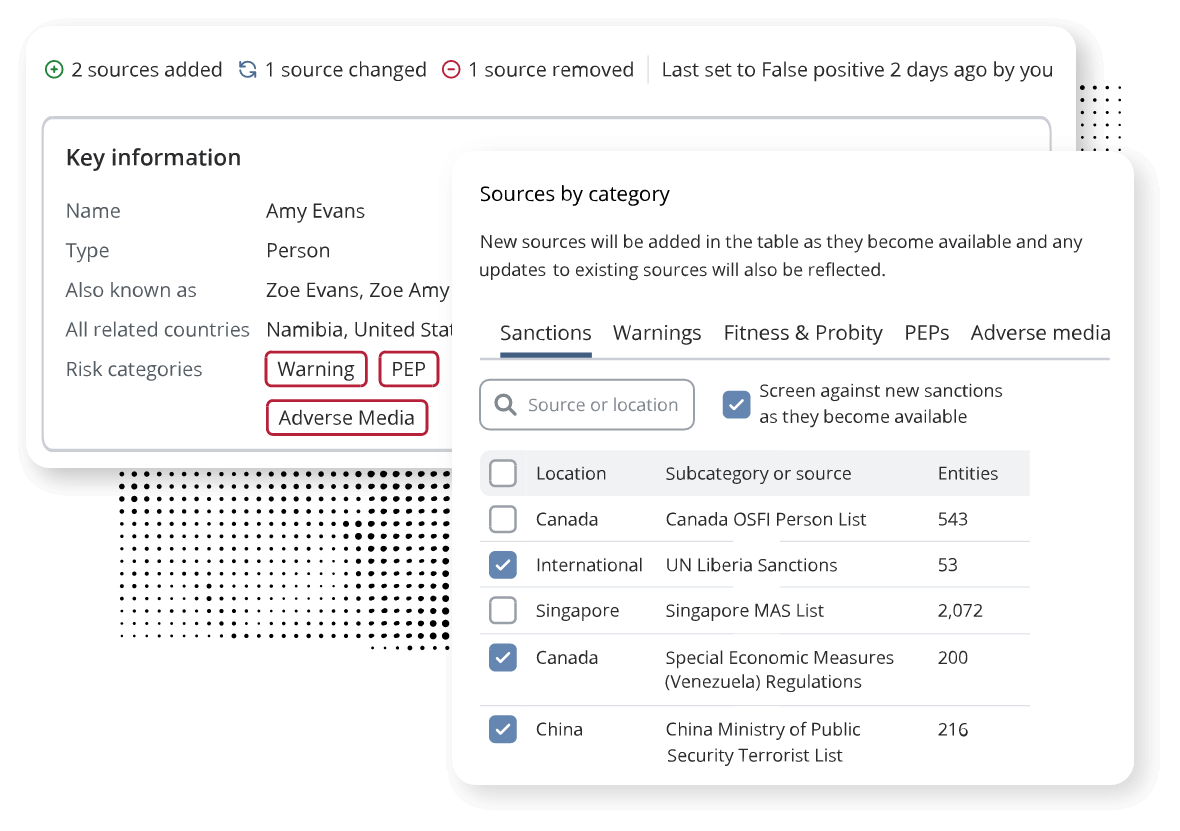Customer Screening and Monitoring
Quickly access our sanctions, watchlist, PEP and adverse media database
- Reduce false positives by up to 70% with instant alerts.
- Expert help whenever you need it.
- Screen individuals or entities all-in-one platform.

1000+ firms are already using ComplyAdvantage. Are you ready?
Starter Plan
- Monitor up to 1000 customers.
- Screening & monitoring included.
- Quick set-up.

Reduce cost and manage risk effectively
- Monitor up to 1000 customers in one place.
- Improve efficiency with effective case management.
- Integrate seamlessly with API access.
- Tailor screening configurations to align with your risk appetite.
- Automate ongoing monitoring.
- Make better decisions with insightful compliance performance reports.
Why businesses worldwide work with us
You’re in safe hands – we’re one of the world’s leading AML solution providers, proudly sitting in G2’s Leader quadrant for Anti-Money Laundering software.
Scale up and down based on your requirements with our flexible Customer Screening solution for streamlined customer onboarding.
Experience rapid set-up (100% CSAT) and ongoing friendly support (average 94.5% CSAT).
Frequently asked questions
A customer is an individual or business screened and/or monitored against our database.
Once you have signed up for the subscription, our team will set you up within 1 business day.
You can cancel at any time by emailing [email protected]. Your subscription will run to the end of the billing cycle.
You can continue to use the system. In the next billing cycle, we will charge you for any extra customers monitored outside of your allowance.
You can turn monitoring on or off for any customers at any time.
You can increase your subscription package by using the billing dashboard or get in touch via [email protected], and we will send you a link to upgrade your package.
We accept all major credit cards.
You will receive an invoice after each monthly payment and have access to a dashboard to see previous invoices.
Payment is due on the date of the initial subscription each month. For example, if your subscription started on May 4, your next invoice will be due June 4.
Yes, you can use the API. All functionality is available via the API or case management.



 EN
EN




